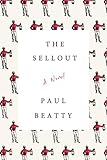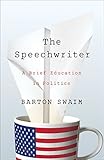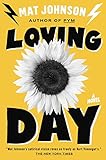For the past few years, I’ve used these essays to reflect somberly on the events of the year, and how they have shaped me as a reader and a person. Unfortunately, I have a selective memory, and can generally only recall the events of the year that have been horribly depressing. I blame this on my Catholic upbringing, and the fact that many of the first books I ever read were about boys who loved dogs who then die. (Either the boy or the dog. It doesn’t matter.) So the end result has been a series of essays more dismal than a Leonard Cohen concept album about children who have burned to death in chemical factory explosions.

 But this year has been different! I mean, a lot of depressing things have happened, but thanks to my therapist (by which I mean my dog, because I have shitty health insurance), I’ve learned to deal with it with a mixture of denial and gleeful resignation. I also started reading funnier books, because life is short — too short for books where dogs die at an alarming frequency. (Except for The Visiting Privilege by Joy Williams, which does have more than one dead dog, but which owns.)
But this year has been different! I mean, a lot of depressing things have happened, but thanks to my therapist (by which I mean my dog, because I have shitty health insurance), I’ve learned to deal with it with a mixture of denial and gleeful resignation. I also started reading funnier books, because life is short — too short for books where dogs die at an alarming frequency. (Except for The Visiting Privilege by Joy Williams, which does have more than one dead dog, but which owns.)
One of the funniest books I read this year was also one of the best novels I’ve ever read. Paul Beatty’s The Sellout is chiefly about racism and slavery, neither of which, of course, are traditionally fodder for light humor, unless you are Donald Trump. The book opens with the African-American narrator sitting before the U.S. Supreme Court, where he’s landed after trying to reinstate slavery in his South Los Angeles neighborhood.
The court’s sole African-American justice, who is not named but who is clearly Clarence Thomas, is not amused. “Racial segregation? Slavery? Why you bitch-made motherfucker, I know goddamn well your parents raised you better than that! So let’s get this hanging party started!” The thought of Justice Thomas saying anything from the bench is funny enough; imagining him calling someone a “bitch-made motherfucker” is genuinely inspired comedy. The Sellout is a serious book, but it’s also a masterpiece of inspired humor.
 Politics is also at the center of the debut book The Speechwriter: A Brief Education in Politics by Barton Swaim. The author worked as a writer in the press office of Mark Sanford, the then-governor of South Carolina who later inspired the (still hilarious!) euphemism “hiking the Appalachian trail.” Swaim’s portrait of Sanford is scathing but funny, particularly when he discusses Sanford’s tenuous grasp on language. In one passage, Swaim warns his co-worker that Sanford hates sentences that begin with conjunctions, urging him to change a sentence that begins with “Yet.” “He doesn’t know ‘yet’ is a conjunction,” his co-worker responds, correctly. It’s a great, frequently hilarious political memoir by one of America’s smartest young writers.
Politics is also at the center of the debut book The Speechwriter: A Brief Education in Politics by Barton Swaim. The author worked as a writer in the press office of Mark Sanford, the then-governor of South Carolina who later inspired the (still hilarious!) euphemism “hiking the Appalachian trail.” Swaim’s portrait of Sanford is scathing but funny, particularly when he discusses Sanford’s tenuous grasp on language. In one passage, Swaim warns his co-worker that Sanford hates sentences that begin with conjunctions, urging him to change a sentence that begins with “Yet.” “He doesn’t know ‘yet’ is a conjunction,” his co-worker responds, correctly. It’s a great, frequently hilarious political memoir by one of America’s smartest young writers.
 Another great debut is Lauren Holmes’s Barbara the Slut and Other People. Holmes deals with serious subjects — broken families, AIDS, slut-shaming — but she has a brilliant sense of humor that shines through nearly all of her stories. Particularly great is “I Will Crawl to Raleigh If I Have To,” about a young woman’s abortive attempt to break up with her boyfriend while on the way to a vacation with her family and their friends. Her description of a pre-teen boy that the protagonist loathes is especially funny: “Dylan was twelve and seemed like he was two or three years away from realizing that he hated his parents. For now, though, he liked to sit as close to his mom as possible, and other than that his only hobbies were whining and watching anime.”
Another great debut is Lauren Holmes’s Barbara the Slut and Other People. Holmes deals with serious subjects — broken families, AIDS, slut-shaming — but she has a brilliant sense of humor that shines through nearly all of her stories. Particularly great is “I Will Crawl to Raleigh If I Have To,” about a young woman’s abortive attempt to break up with her boyfriend while on the way to a vacation with her family and their friends. Her description of a pre-teen boy that the protagonist loathes is especially funny: “Dylan was twelve and seemed like he was two or three years away from realizing that he hated his parents. For now, though, he liked to sit as close to his mom as possible, and other than that his only hobbies were whining and watching anime.”
 It’s no secret that the author Mat Johnson is hilarious; he has one of the funniest Twitter accounts of any writer. Johnson mixes humor and pathos in Loving Day, a novel about a biracial comic book artist who discovers he has a teenage daughter. The book is both sweet and funny, with some of the sharpest, most amusing writing of the year. On a comic book-obsessed man who has invited the narrator to sign his work at a convention: “Travis is so happy. He smiles the width of his wire-framed glasses. He looks like he just received an official letter that says he is not a juvenilia-obsessed dork. The letter is wrong.”
It’s no secret that the author Mat Johnson is hilarious; he has one of the funniest Twitter accounts of any writer. Johnson mixes humor and pathos in Loving Day, a novel about a biracial comic book artist who discovers he has a teenage daughter. The book is both sweet and funny, with some of the sharpest, most amusing writing of the year. On a comic book-obsessed man who has invited the narrator to sign his work at a convention: “Travis is so happy. He smiles the width of his wire-framed glasses. He looks like he just received an official letter that says he is not a juvenilia-obsessed dork. The letter is wrong.”
 Finally, there’s the absurd and anarchic The Mark and the Void, by Irish author Paul Murray. This one is special to me — on a recent episode of The Book Report, Janet Potter and I discussed the novel, Murray’s follow-up to his amazing Skippy Dies. (If it weren’t for Murray, The Book Report might never have happened; Janet and I first met when I edited her review of Skippy Dies for Bookslut.) The Mark and the Void is one of the few books that made me laugh out loud multiple times, especially this passage, where the French protagonist and his Australian co-worker are talking to a mysterious writer who has entered their lives:
Finally, there’s the absurd and anarchic The Mark and the Void, by Irish author Paul Murray. This one is special to me — on a recent episode of The Book Report, Janet Potter and I discussed the novel, Murray’s follow-up to his amazing Skippy Dies. (If it weren’t for Murray, The Book Report might never have happened; Janet and I first met when I edited her review of Skippy Dies for Bookslut.) The Mark and the Void is one of the few books that made me laugh out loud multiple times, especially this passage, where the French protagonist and his Australian co-worker are talking to a mysterious writer who has entered their lives:
‘I’m Claude’s best mate in this dump,’ Ish volunteers. ‘Which is funny, because people say that Frogs and Ozzies don’t get on. ‘Cos the Frogs are all, you know, Shmuhh-shmuhh-shmuhh, and the Ozzies are all, Wa-hey! But we get on like a house fire, don’t we, Claude?’
I picture the flames, the screaming. ‘Yes,’ I say.
Murray’s novel brings back great memories for me — talking about books that made me laugh with one of my best friends, as opposed to, say, talking about books that chronicle the Armenian genocide with my therapist (read: dog). And while I’m never going to give up on depressing literature — it is in my genes — I’m going to keep making myself follow up every soul-crushing war novel with one that’s more light-hearted. Unless Donald Trump gets elected president next year. Then it’s all books about dead dogs, and I’ll be writing my next Year in Reading essay from my tar-paper shack in rural Canada.
More from A Year in Reading 2015
Don’t miss: A Year in Reading 2014, 2013, 2012, 2011, 2010, 2009, 2008, 2007, 2006, 2005
The good stuff: The Millions’ Notable articles
The motherlode: The Millions’ Books and Reviews
Like what you see? Learn about 5 insanely easy ways to Support The Millions, and follow The Millions on Twitter, Facebook, Tumblr.









